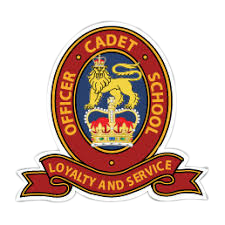 Colonel Donald Robert Jackson, DSO was born on 12 October 1915 at Sunningdale, Surrey, England. He was the eldest son of Robert Edward Jackson (1886-1948) and his wife Edith Marguerite, nee Vautin.
Colonel Donald Robert Jackson, DSO was born on 12 October 1915 at Sunningdale, Surrey, England. He was the eldest son of Robert Edward Jackson (1886-1948) and his wife Edith Marguerite, nee Vautin.
His father was born at Crows Nest in Queensland and, after joining the First Australian Imperial Force (AIF) in November 1914, he embarked as Adjutant of the 10th Light Horse Regiment. He was wounded in action at Gallipoli and sent to England to convalesce. After staff appointments in England he served with the 3rd Division on the Western Front. For his service he was appointed to the Legion d’honneur (1917), awarded the DSO (1918) and appointed CMG (1919). His eldest son Donald was born during this wartime service. His second son was Brigadier Oliver David “O.D.” Jackson, DSO who also had a distinguished service career in the Australian Military Forces. Brigadier David Jackson, DSO commanded the First Australian Task Force as its inaugural Commander at Nui Dat in 1965-66. Thus the family came from the finest of Australian Army traditions.
Colonel Donald Jackson was educated at Sydney Boys’ High School and entered the Royal Military College (RMC), Federal Capital Territory, in the small class of 1934, becoming head cadet in his final year. After graduation he was allocated to infantry and posted to the Sydney University Regiment in order to undergo study there. He graduated with a Bachelor of Arts (BA) in 1939. He was with Darwin Mobile Force when World War 2 broke out, also in 1939.
Like his father before him, he transferred to the AIF and then sailed to the Middle East as Adjutant of the 2/1st Battalion with the rank of captain. In 1940-41 he performed well in the fighting in Libya. He participated in the ill-fated Greek Campaign (April 1941) as a staff officer on the Headquarters of 1 Corps. When the evacuation began, he supervised the embarkation of the nursing staff. Following a rearguard action near Argos, he was captured but escaped the same afternoon. He collected a force of about two hundred allied troops and, after a hazardous journey, arrived on Crete from where he was evacuated to Palestine. His actions won him the DSO.
Appointed brigade major of the 24th Brigade in Syria, he moved to Egypt in June 1942 for the operations that culminated in the Battle of El Alamein in October-November. Next year he sailed for Australia, arriving in February. He was the assistant to the Director of Military Intelligence at Advanced Land Headquarters in Brisbane, before becoming second-in-command of the 2/28th Battalion in July 1944. From June 1945 he fought in British North Borneo against the Japanese. At the conclusion of the Second World War he commanded the 67th Battalion (the forerunner to 3 RAR) in the British Commonwealth Occupation Forces in Japan during 1946-47. His post-war appointments included Director of Infantry at AHQ, Melbourne, and Commandant of the Officer Cadet School Portsea, Victoria during 1956-57. He retired from the Army in 1968 as a Brigadier.
From 1968 he held management positions with Hammersley Iron Pty Ltd at Dampier, Western Australia. He was the first Chairman of the Defence Forces Credit Union (1975) in Canberra. In retirement he lived for a time in Fiji. He was twice married. His second wife was Anita Mary Edith Urquhart whom he married on 6 December 1949 at St John’s Church of England, Toorak.
He died on 12 January 1986 in Canberra, ACT, survived by his wife, daughter and two sons.
